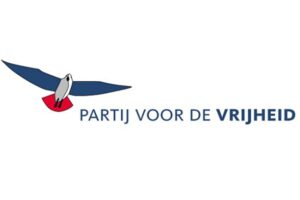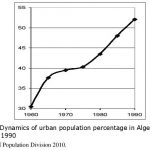PVV Blog 6 ~ “Geert Wilders Is A Fascist”
No Comments yet It was this title (“Geert Wilders is a fascist”) that Liberal Arts and Sciences student Henk Bovekerk proposed at the time for his Bachelor thesis, which addressed the question of whether Geert Wilders’ PVV, during the academic year 2011-2012, should be characterized as fascist.
It was this title (“Geert Wilders is a fascist”) that Liberal Arts and Sciences student Henk Bovekerk proposed at the time for his Bachelor thesis, which addressed the question of whether Geert Wilders’ PVV, during the academic year 2011-2012, should be characterized as fascist.
In the parliamentary elections of June 2010, the PVV had achieved a resounding victory with 24 seats, and the PVV had become the tolerated partner of a VVD-CDA cabinet that ruled from October 2010 to April 2012.
At that time, the PVV had attracted more attention from other politicians, the press, and academia than ever before, and one of the prevailing questions was whether the party was fascist, based on its party program, the writings of party leader Geert Wilders, and PVV member from the early days and now Speaker of the Parliament Marin Bosma, about whom I previously wrote in this series.
A ten for the thesis
I was the daily supervisor of student Bovekerk, and the late Professor Jan Blommaert was the second reader of the thesis.
Jan Blommaert and I were both very impressed by the thesis, its structure, the style of reasoning, and the English, and we decided to award the thesis the highest grade: a 10.
However, I did express to student Bovekerk that I found the proposed title mentioned above, “Geert Wilders is a fascist,” to be too much of a personal attack, so the student came up with the title “Prototypical Fascism in Contemporary Dutch Politics,” although Bovekerk did maintain in the text his conclusion that Wilders was a fascist.
The thesis was archived in the university archive, and we went about our daily business. But that was short-lived. The thesis was mentioned on the intranet of our faculty, with mention of the highest grade, and as far as I have been able to reconstruct, it was one of our own students who brought the thesis and the high grade into the public eye.
Media Bombardment
On what was otherwise a peaceful Friday afternoon in January 2012, I was bombarded with calls from all over the Dutch media with the news that ‘student Bovekerk considered Geert Wilders’ PVV and Geert Wilders himself to be fascist’ in his BA thesis. The press cried out: ‘De Ruiter gives student who claims PVV is fascist a 10’. The frenzy that ensued lasted for a long time and was very threatening.
Robert Paxton
Bovekerk had conducted an analysis of PVV ideology based on the work of Robert Paxton in “The Anatomy of Fascism” (2004). Paxton considers fascist movements in five ‘life phases’, and because space is limited in this blog to delve into all his considerations, I present the conclusion of the student: Geert Wilders’ PVV fit into Paxton’s timeline of life phases and was unequivocally in phase 1. Or, in Bovekerk’s words (p. 51):
‘I have … attempted to demonstrate that Wilders and the PVV are the prototype of contemporary fascism. Driven by nationalism and racism, the PVV divides the world along Manichean lines and claims that the Netherlands and the West are seriously threatened by Islam. It promises to solve this crisis through a policy of exclusion, such as banning the Quran and codifying Dutch dominance and the subservience of Islam in the Dutch constitution. The PVV views the left as its enemy and constantly seeks to discredit it. … The PVV is a party of visceral emotions, devoid of philosophical underpinnings, intellectual debate, and avoiding critical media, aiming to appeal to the emotions of voters rather than reason. This is what fascist movements did in phase one, according to Paxton. And that is what the PVV does. Thus, the PVV is in phase one a fascist movement, and as such, it can rightly be called the prototype of contemporary fascism.’
Phases 2 and 3 are characterized by ‘rooting in the political system’ and ‘gaining political power’, and because the PVV was a tolerated partner at the time, Bovekerk concluded that the PVV had also penetrated these two phases.
Viewed from the Paxton perspective, one could now conclude that the PVV has shifted even further into Paxton’s phases today because the party is now the largest in the country, holds the position of Speaker of the House, and the party is seriously engaged in forming a government.
But is the PVV definitively fascist?
Are Comparisons with Fascism Meaningful?
At the time, I always argued that comparisons between – in this case – the PVV and past fascism were not meaningful. My argument was that such comparisons are unnecessary because a glance at the PVV’s party program already made it clear that it was and is filled with disdain for the elite, advocating for the own people, xenophobia, racism, and discrimination. Moreover, comparisons with old Italian and German fascism always evoke a lot of emotions, and before you know it, you’re engaged in the moral question of whether you can and should make such comparisons instead of asking how we can characterize the party without those comparisons. And for me, it was and still is evident: the party unequivocally advocates undemocratic positions and is a potential danger to democracy. That’s what I thought then and still think now. We don’t need World War II to draw those conclusions. By the way, I fully supported Bovekerk’s academic endeavor. Guiding a student in a thesis doesn’t automatically mean that the supervisor subscribes to the student’s conclusions. The guidance is about assessing the student’s academic skills.
Later, I did reconsider my position. Completely ignoring World War II does not do justice to the lessons we can draw from that war. But my final conclusion remains the same.
Regret about the 10?
I have often been asked if I regret giving the 10, and the answer until this day is that I do not regret it. A 10, I replied, stands for ‘excellent’ and not for ‘perfect’. Perfect, I argued then and still do now, is only God (if He exists, then He cannot be anything other than perfect, otherwise He doesn’t exist). Jan Blommaert and I had the highest appreciation for the work of the student, who, incidentally, was also bombarded by the media.
Twelve years have passed since. The question of whether the PVV is fascist has become less relevant. But the party is allied with the Italian Lega Nord, the French Rassemblement National, and the German Alternative für Deutschland in the European Parliament; especially the Lega Nord and the Alternative für Deutschland are characterized as neo-fascist or neo-Nazi parties.
Fascist or not, I observe that now the party is more socially acceptable than ever, it is also more than ever a greater threat to democracy.
You May Also Like
Comments
Leave a Reply







